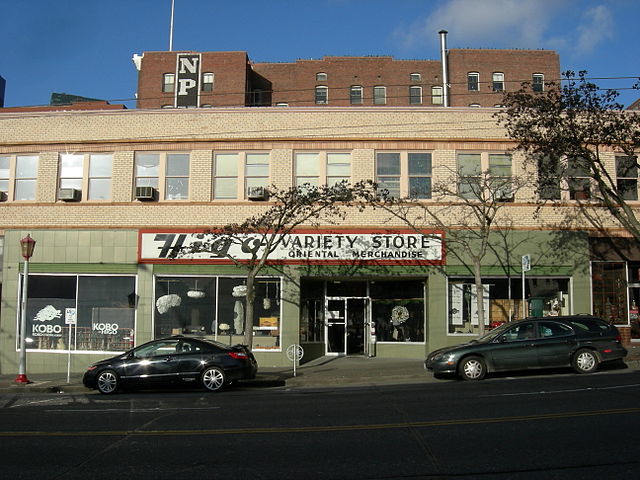100-yen shops are common Japanese shops in the vein of American dollar stores. Stocking a variety of items from clothing to stationery, housewares to food, each item is priced at precisely 100 yen, which is considered attractive to Japanese consumers because it can be paid for with a single 100-yen coin. However, the current Japanese sales tax of 8% or 10% is also added, making a 100-yen purchase actually cost 108 or 110 yen. Larger items, like furniture and tools, may also cost more yet are still relatively affordable, usually costing less than 1000 yen.
Daiso at Hanaten Osaka-City
100-Emon at Kohnoike Higashi Osaka-City
Japan's first 100-yen shop
A variety store is a retail store that sells general merchandise, such as apparel, auto parts, dry goods, toys, hardware, furniture, and a selection of groceries. It usually sells them at discounted prices, sometimes at one or several fixed price points, such as one dollar, or historically, five and ten cents. Variety stores, as a category, are different from general merchandise superstores, hypermarkets, warehouse clubs, grocery stores, or department stores.
99 Cents Only Stores in Dallas, Texas
F. W. Woolworth and S. S. Kresge stores on Lackawanna Avenue, in downtown Scranton, Pennsylvania. The two stores were often found near each other in downtown areas.
An art gallery in Seattle's International District preserves the façade and some features of Higo Variety Store, an independent Japanese-American five and ten.
Walton's Five and Dime Store in Bentonville, Arkansas, the first store of what would eventually become Walmart.







